|
5/11/2020 3 Comments The Fogging Problem!Currently, wearing a mask in public places is recommended and sometimes required. I fully support doing everything we can to protect each other, but for the love of good vision: How do I keep my glasses from fogging up!? Everyone wants to know. We have some answers for you! #1 Adjust the fit of the maskThe reason our masks cause our glasses to fog up is because the steam from our breath is redirected upwards and condenses on our spectacle lenses. The best thing you can do to prevent this from happening is to make sure you have a properly fitting mask with a tight fit around your nose. This will prevent the air from flowing up toward your lenses. I recommend a mask that fits high on your face and has a face-forming adjustable metal piece around the nose so you can have a snugger fit where it matters most for fogging. If you are unable to buy a mask with this feature, you can try adding a seam for a piece of pipe cleaner to your homemade cloth masks. Your glasses should be on the outside of the mask. Adjusting the position of wear of your glasses out a little farther on your nose can also help in order to keep your lenses farther from where the air exits the mask. Getting a tighter fit to the top of your mask is the key to reduce fogging. Our seasoned mask-wearer on staff, Levi (who previously worked as a surgical assistant and wore masks daily for years), gave us a few other tips that we found helpful. To get a tighter fit across the nose, cross the ear loops. This brings the top of the mask tighter to your face and helps redirect the air sideways instead of up. Another useful tip was to use a paperclip to tie the ear loops behind your head to get a tighter fit. It also saves your ears if you are wearing ear loop masks for long hours daily. The tip I found absolutely the most helpful was to add a folded tissue between the bridge of my nose and the mask. This blocked airflow upwards and the tissue absorbs the moisture that otherwise would end up condensed on your lenses. Alternatively, you can put a strip of medical tape across the top of the mask at the bridge of your nose. This also works really well! #2 The Surfactant Effect: Dish Soap, Shaving Cream, Baby Shampoo, etcAdding a surfactant such as soap to your lenses will reduce the surface tension of the water molecules, allowing them to spread more evenly over the lenses and less likely to condense and fog your vision. Cleaning your lenses with mild dish soap, shaving cream and baby shampoo have all been recommended for this purpose. You do, of course, want to be careful not to scratch or damage your lenses. This is a temporary fix and will have to be re-applied. I personally clean my lenses and glasses frame daily with dawn dish soap for sanitation purposes and have had no adverse effects or damage to the lenses or frame. Unfortunately, even though I clean the lenses, I do continue to have fogging to some degree. I was not completely fog-free, so I was curious to try some ready-made products on the market specific for reducing fogging spectacle lenses. Titmus Fog Eliminator Cloth (~$2 per cloth)This is a reusable (approximately 40x) anti-fog cloth that comes in a resealable pouch. it is specifically made for spectacle lens materials (plastics, polycarbonate, glass) and is safe for lens coatings. It can also be used on face masks, shields, camera lenses, rifle scopes, and binoculars. To use, you want your lenses clean and dry, and then you wipe the entire surface of your lenses for 10-15 seconds. You want to make sure to store the cloth in its pouch to keep it from accumulating dust or debris that could scratch your lenses. If your lenses get wet, you will need to reapply. Last week, I was having trouble with only one of my lenses fogging up! So I applied the Titmus Fog Eliminator and you can see my results below. It definitely improved the fogging by a good margin, although still not entirely eliminated. We have these cloths available at the office if you would like to try them. Other Products on the market include Cat Crap (yes, that's what it is called!) and Clarity Defog It, which we are anxious to try out for ourselves. We will update this blog as we are able to obtain samples.
We would love to hear from you in the comments about what works for you to DE-FOG!
3 Comments
|
Dr. Rebecca Gambs, O.D.Friendly optometrist and eye blogger! Watch for educational materials, optical reviews, and more! Eye blog for you :) Archives
July 2023
Categories |
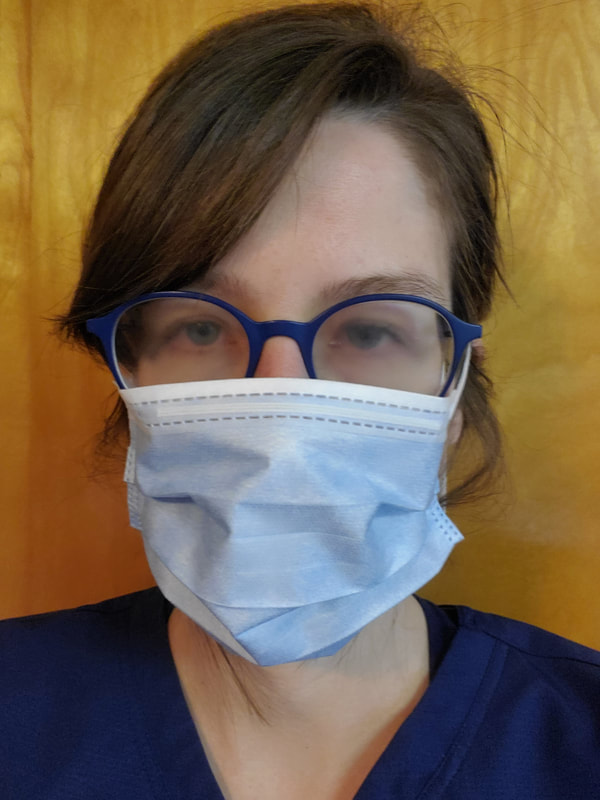
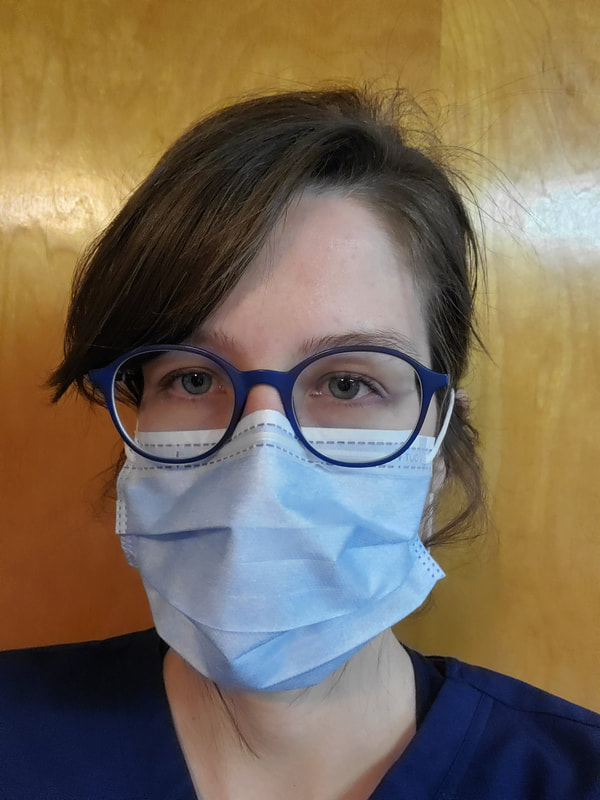
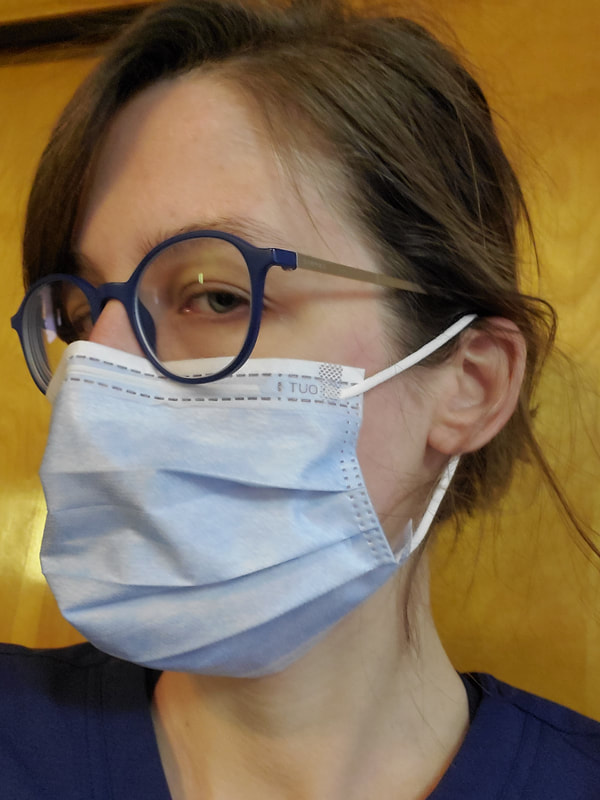
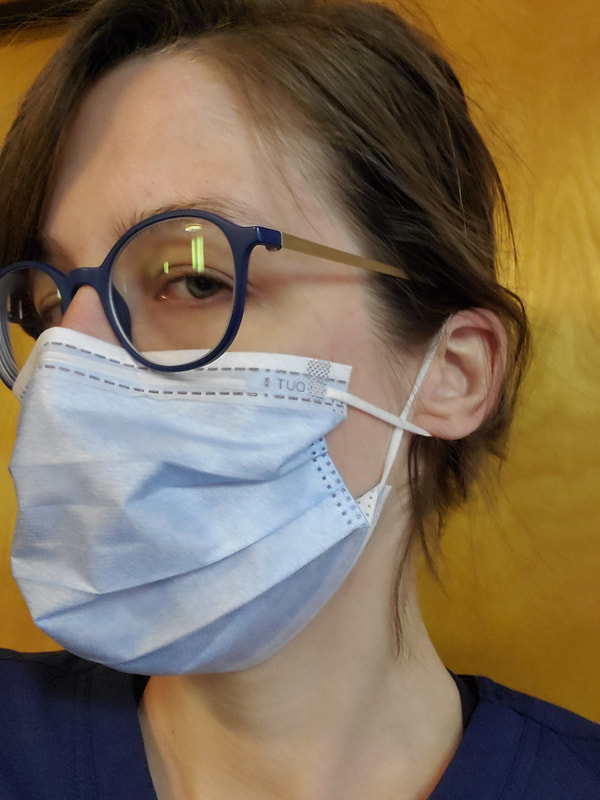
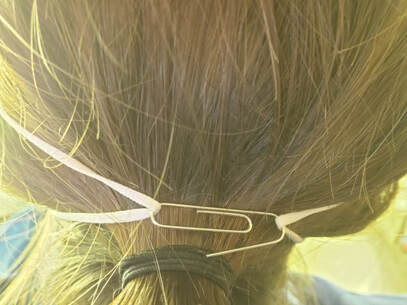
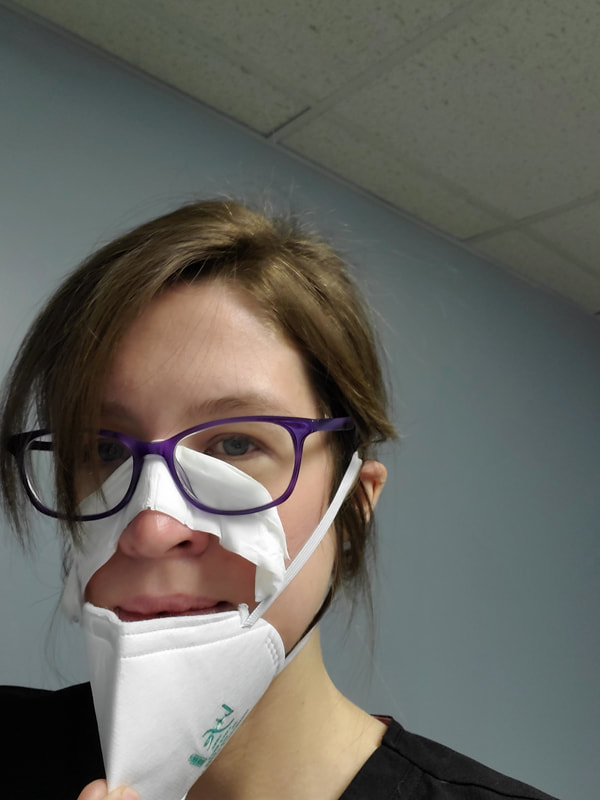
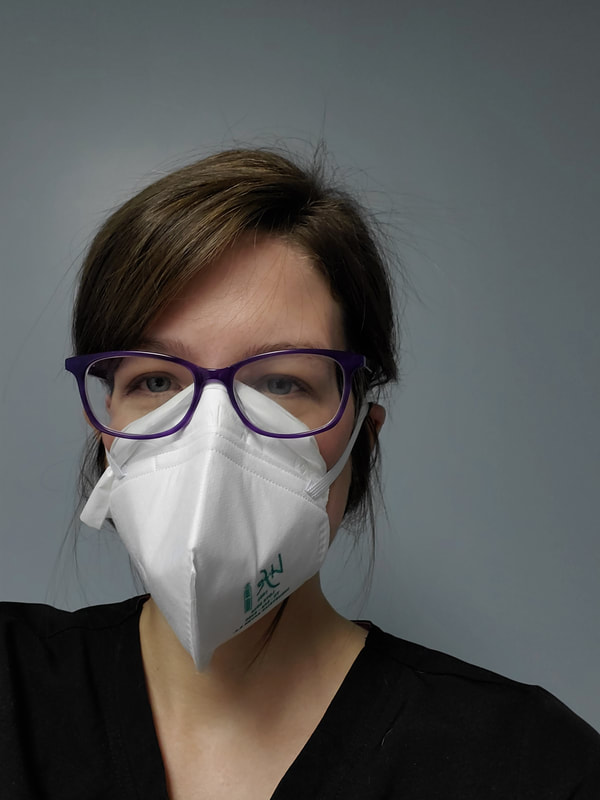
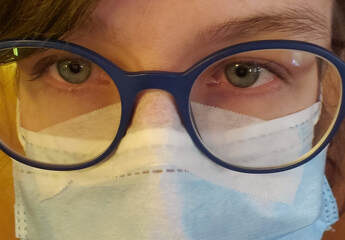
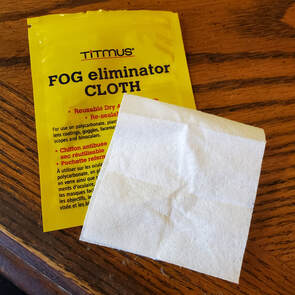
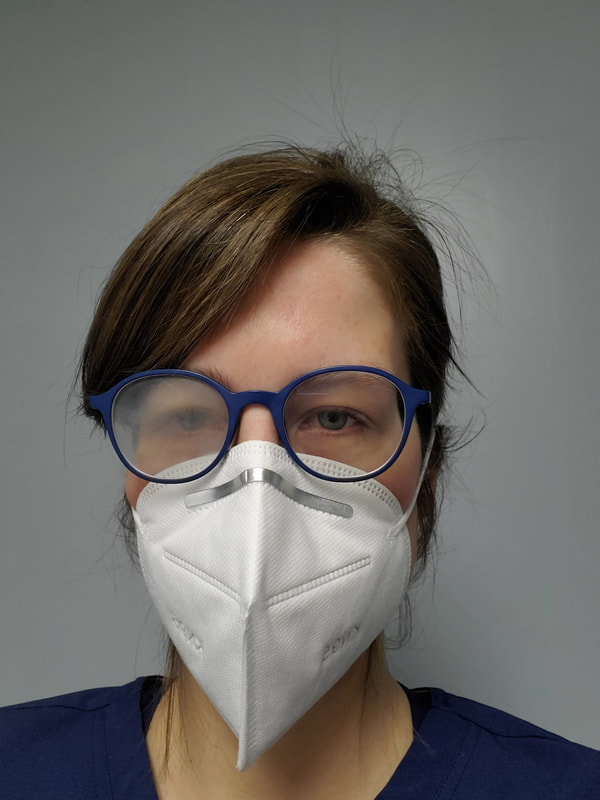
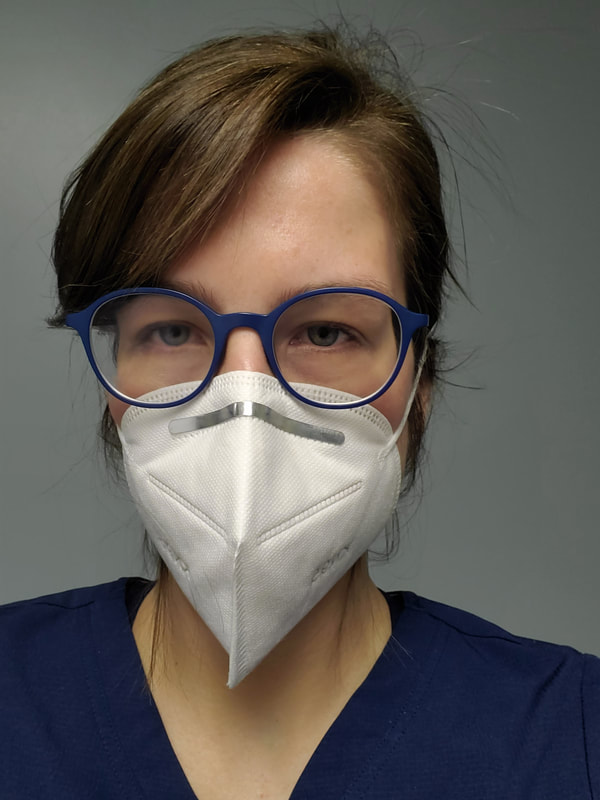
 RSS Feed
RSS Feed